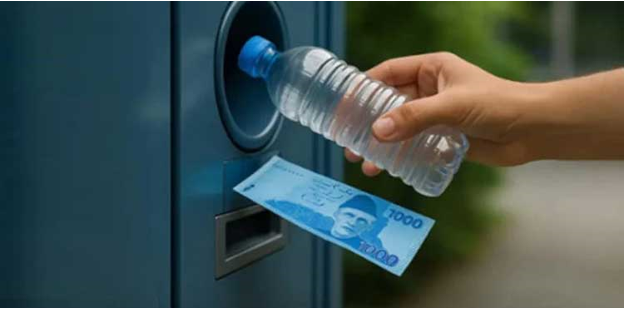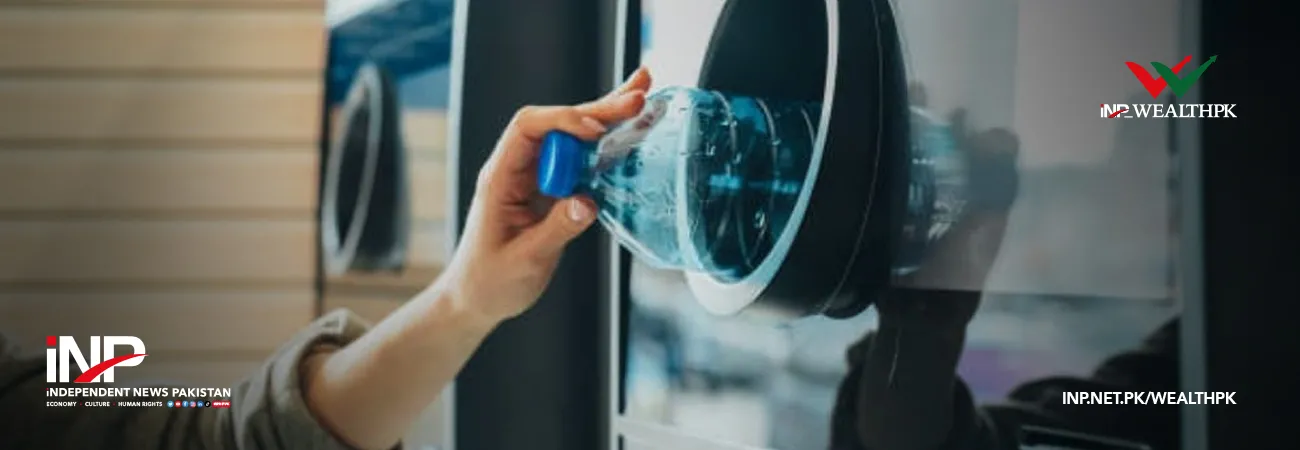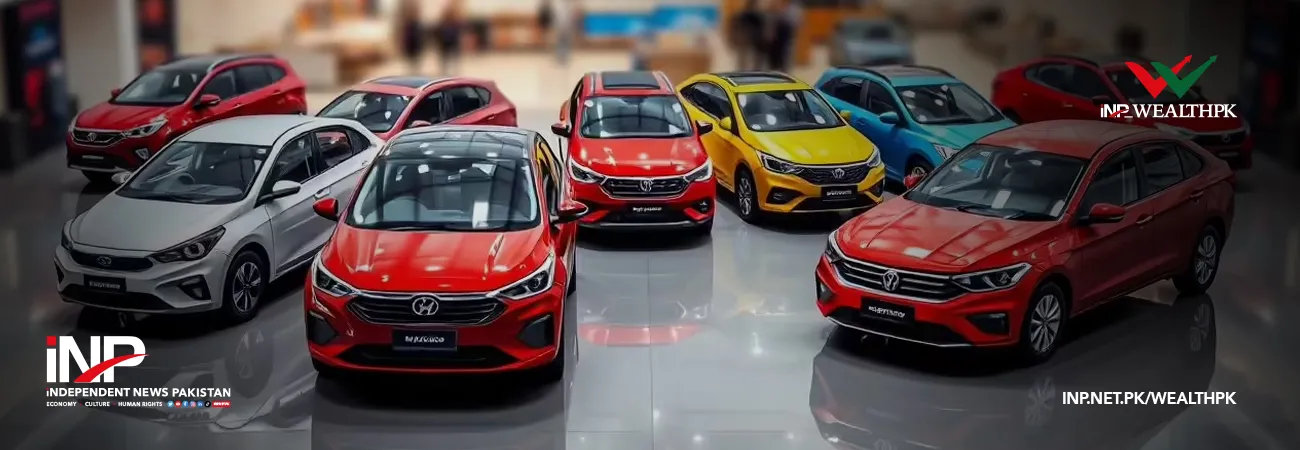INP-WealthPk
Muhammad Luqman
A new eco-friendly initiative has been launched in Pakistan’s eastern city of Lahore to tackle plastic pollution by incentivising citizens to recycle used plastic bottles.

Under the programme, Lahorites can deposit empty plastic bottles into Reverse Vending Machines (RVMs) and earn up to Rs1,000 in "Green Credit" per kilogramme of plastic — roughly equivalent to 20 one-and-a-half-litre bottles.
Each RVM is equipped with weight-sensitive sensors that reject non-plastic materials. Users simply insert the bottles into a designated slot, press button “A”, enter their mobile number, and press button “B” to view their credit details on the screen. The same information is also accessible via a dedicated mobile application.
Lahore generates approximately 500 tons of plastic waste daily, including single-use beverage bottles, many of which end up polluting waterways and landfills. The project, led by tech company Intratech Group, is part of the Punjab Environmental Protection Agency’s Green Credit Programme.
“The project aims to transform how urban waste is managed and perceived by offering financial incentives in exchange for used plastic,” said Gulfam Abid, Chairman of Intratech Group.
Talking to WealthPK, he said that initially, four RVMs are installed at private universities in Lahore, involving a cost of $100,000. Each machine has a daily collection capacity of 100 kilogrammes — approximately 2,000 one-and-a-half-litre polyethylene terephthalate (PET) bottles.
While the machines are locally manufactured in Pakistan, they incorporate advanced Chinese technology. Each unit costs around Rs800,000. Abid said the scheme will be extended to other cities in Punjab if it proves successful in Lahore. The model is inspired by similar waste management initiatives in European countries.
The collected plastic bottles will be used to produce eco-bricks. “We have set up a plant in Lahore’s Sundar Industrial Estate for the conversion of waste plastic bottles into eco-bricks,” he added. Eco-bricks — plastic bottles tightly packed with non-recyclable plastic waste — serve as reusable building blocks. These construction-grade bricks can be used to manufacture benches, walls, pavements, furniture, and road foundations.
“The launch of the Green Credit Scheme in Lahore marks a major step forward in managing single-use plastic bottles effectively, paving the way for a cleaner and greener city,” claimed Abid. Environmentalists, while appreciating the scheme, argue that its current scope is limited.
“The collection of single-use plastic bottles, raw material for the polyester industry, is already quite common in Lahore and other cities across Pakistan. Scavengers collect them for economic gain,” said Hammad Naqi Khan, Director General of the World-Wide Fund for Nature (WWF)–Pakistan.
Talking to WealthPK, he pointed out that the real challenge lies in dealing with other plastic items such as shopping bags, cutlery, crockery, and straws, which are not currently collected or recycled. “These items often end up in the sewerage system or landfills without undergoing any recycling or degradation,” Khan said.
He emphasised that the Green Credit Scheme should be expanded to cover all types of plastic waste — from single-use PET bottles to snack wrappers. “The single-use bottle is just the tip of the iceberg. We need to adopt a much broader and more holistic approach to address the problem of plastic pollution effectively,” the WWF-Pakistan chief concluded.
Credit: INP-WealthPk












